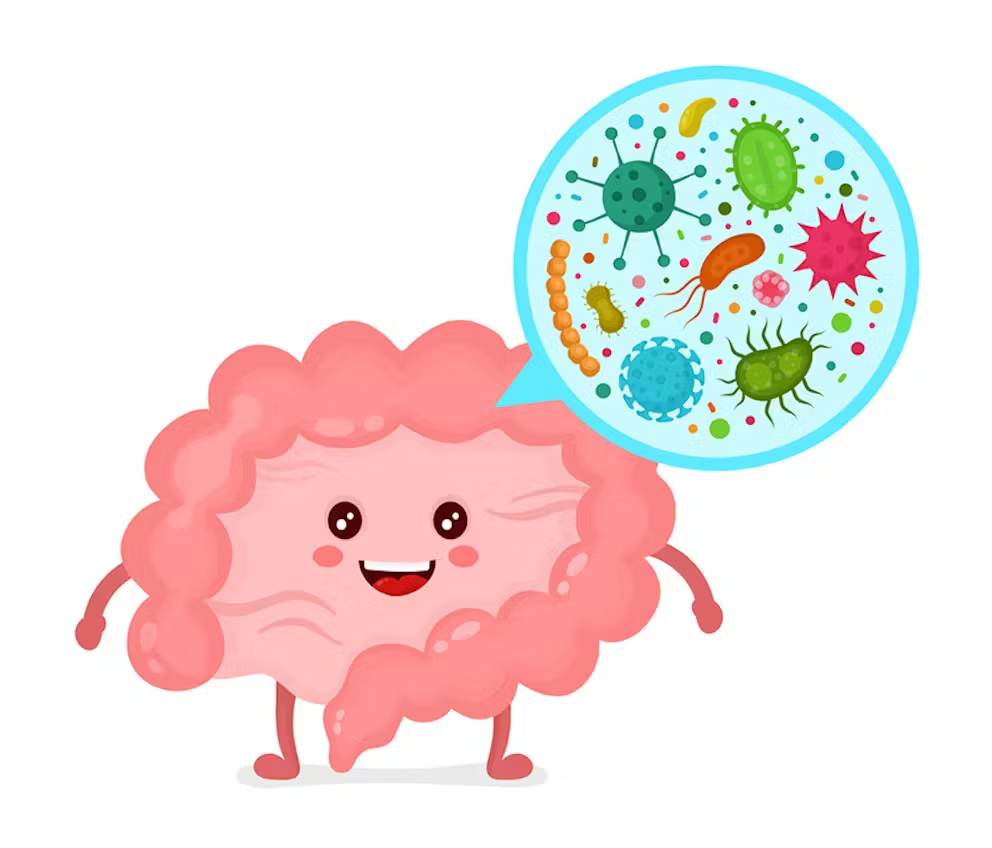Probiotics are the live microorganisms that confer health benefits when consumed in adequate amounts, have become a cornerstone of modern wellness. Probiotics are Found in fermented foods and supplements, these beneficial bacteria are integral to maintaining a balanced gut microbiome, which support digestion, immunity, mental health, and more. Here we will discover the power of probiotics, how they improve digestion, immunity, mental health, and more. Learn the best food sources, supplements, and expert tips for a healthier gut!
Introduction to Probiotics: What Are They?
In short words, These are beneficial microbes
Probiotics are live microorganisms, primarily bacteria and yeasts often referred to as “good bacteria,” .Common strains of probiotics ( Types of probiotics ) are Lactobacillus, Bifidobacterium, and Saccharomyces boulardii that provide numerous health benefits when consumed in adequate amounts. These good bacteria mainly reside in our gut.
Research shows that probiotics help balance the gut microbiome, which is essential for preventing digestive disorders, enhancing immune function, and even improving mental health. With increasing interest in natural health solutions, probiotics have gained popularity as a key component of a healthy lifestyle.

How Do Probiotics Boost Your Health?
Trillions of bacteria are present in our gut, both beneficial and harmful . When harmful bacteria outnumber the beneficial ones, it can lead to digestive issues, weakened immunity, and chronic inflammation.
Probiotics work by:
Restoring balance in the gut microbiome
Aiding digestion and nutrient absorption
Strengthening the gut barrier to prevent leaky gut syndrome
Producing short chain fatty acid that support colon health
Enhancing immune response by interacting with immune cells
Top Health Benefits of Probiotics
Digestive Health
Probiotics support digestive health by:
Restoring gut flora balance after disruptions like antibiotic use.
Alleviating symptoms of digestive disorders such as Bloating, gas, and constipation,
Diarrhea (including antibiotic associated diarrhea),irritable bowel syndrome (IBS) and inflammatory bowel disease (IBD) like Crohn’s and ulcerative colitis.
Probiotics Enhance nutrient absorption and reduce inflammation in the gut.
These benefits contribute to improved overall digestive function and comfort.
Boosts Immune System
As majority of the beneficial bacteria resides in the gut. Probiotics enhance immune function by:
Stimulating the production of specific antibodies.
Enhancing the activity of immune cells.
Reducing systemic inflammation.
Fighting harmful pathogens
By maintaining a balanced gut microbiome, probiotics help the body defend against infections and illnesses.
Mental Health and Mood Regulation
Emerging research highlights the gut brain axis, a communication network linking the gut and brain. Probiotics may influence mental health by:
Producing neurotransmitters like serotonin, which regulate mood.
Reducing symptoms of anxiety, depression, and stress.
Improving sleep quality and cognitive function.
These effects highlights the potential of probiotics in supporting mental wellbeing.
Skin Health
Probiotics may benefit skin health by:
Reducing inflammation associated with conditions like acne, eczema, and rosacea.
Enhancing skin hydration and barrier function,contribute to clearer and healthier skin.
Protecting against premature aging and UV damage.
Supports Heart Health
Certain probiotic strains can:
Lower LDL (bad) cholesterol
Reduce blood pressure
Improve overall cardiovascular health
Weight Management
Probiotics may aid in weight management because they:
Influence the storage of fat and energy extraction from food.
Regulate appetite related hormones.
Reduce low grade inflammation linked to obesity.
Incorporating probiotics into a balanced diet may support healthy weight maintenance.
Sources of Probiotics
Natural sources of probiotics
Natural sources of probiotics include,

Fermented Foods
Yogurt
Contains Lactobacillus and Bifidobacterium
Choose unsweetened, live-culture varieties
Kefir
A fermented milk drink with 30+ probiotic strains
Great for lactose intolerant individuals
Sauerkraut
Fermented cabbage rich in fiber, vitamins C & K
Supports gut and immune health
Kimchi
A spicy Korean fermented vegetable dish
Packed with Lactobacillus and antioxidants
Kombucha
A fizzy, fermented tea
Contains probiotics, B vitamins, and organic acids
Miso
A Japanese fermented soybean paste
High in probiotics and protein
Tempeh
Fermented soy product with a nutty flavor
A great plant-based probiotic source
Pickles (Fermented in Brine)
Naturally rich in probiotics
Avoid vinegar-based pickles (they lack live cultures)
Probiotic Supplements
Probiotic supplements are available in different doasage forms such as capsules, tablets, powders, and liquids. When we are choosing a probiotic supplement,we shouls keep these factors in mind:
Strain Diversity
Look for multiple strains like Lactobacillus, Bifidobacterium, and Saccharomyces boulardii. Different strains offer different benefits.
CFU Count
Opt for at least 10-50 billion CFUs (colony-forming units) for effectiveness.Higher CFUs may be more effective.
Delayed-Release Capsules
Ensures probiotics survive stomach acid.
Reputable Brands
Choose third-party tested products for potency and purity.Consult a healthcare provider to determine the most appropriate probiotic supplement for your needs.
Potential Side Effects of Probiotics
Probiotics are generally safe for most individuals. However, some people may experience mild side effects, such as gas or bloating, especially when starting supplementation,so start with a low dose and gradually increase to allow your gut to adjust.Individuals with compromised immune systems or underlying health conditions should consult a healthcare professional before beginning probiotic use.
Conclusion
Probiotics offer a multitude of health benefits, from enhancing digestive and immune function to supporting mental health and skin vitality. Incorporating probiotic rich foods into your diet or taking high quality supplements can be a valuable strategy for promoting overall wellbeing. As research continues to uncover the full potential of these beneficial microbes, probiotics remain a promising component of a healthy lifestyle.
Ready to boost your gut health? Start with small dietary changes and monitor how your body responds!
FAQs About Probiotics
Q: which time is the best to take probiotics?
A: Morning, before meals, or as directed by your healthcare provider.
Q: Can children take probiotics?
A: Yes, but choose child-specific strains and consult a pediatrician.
Q: Do probiotics survive stomach acid?
A: High-quality strains with enteric coating or spore-based probiotics (like Bacillus coagulans) survive better.
Q: How long does probiotics take to work?
A: Some notice benefits in a few days, while others may take weeks depending on gut health.